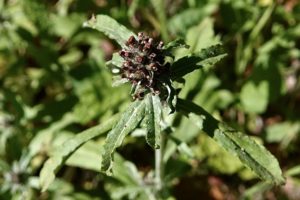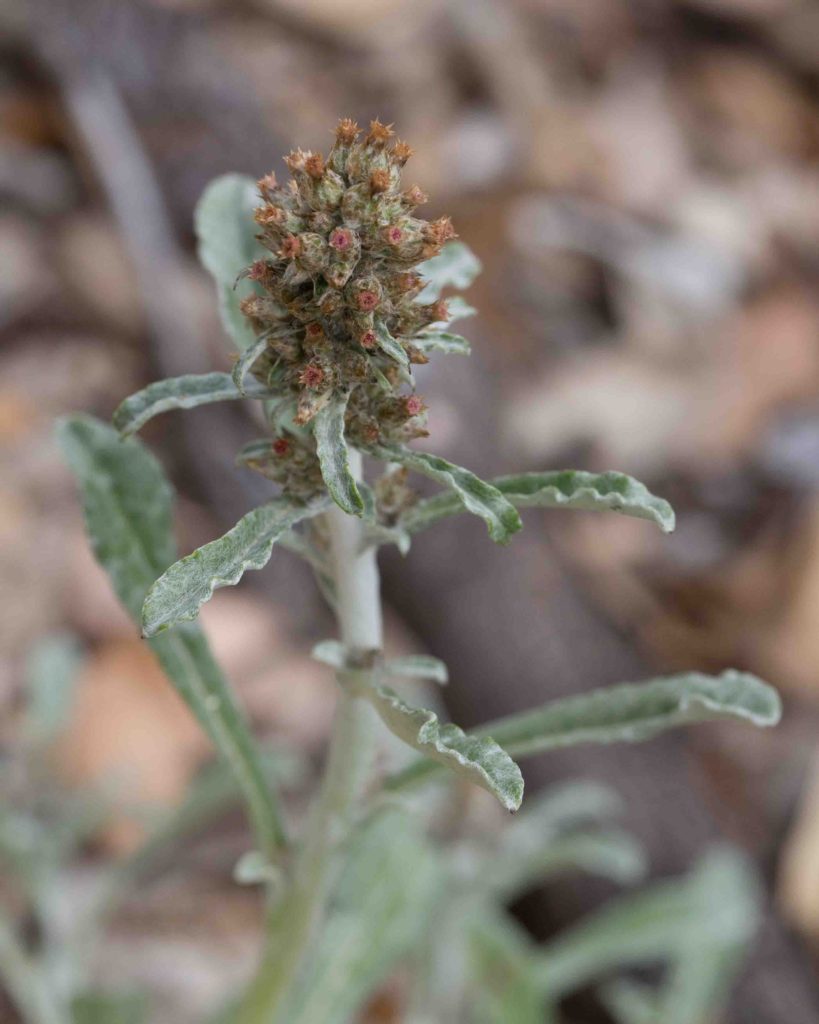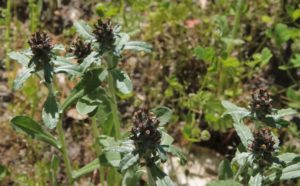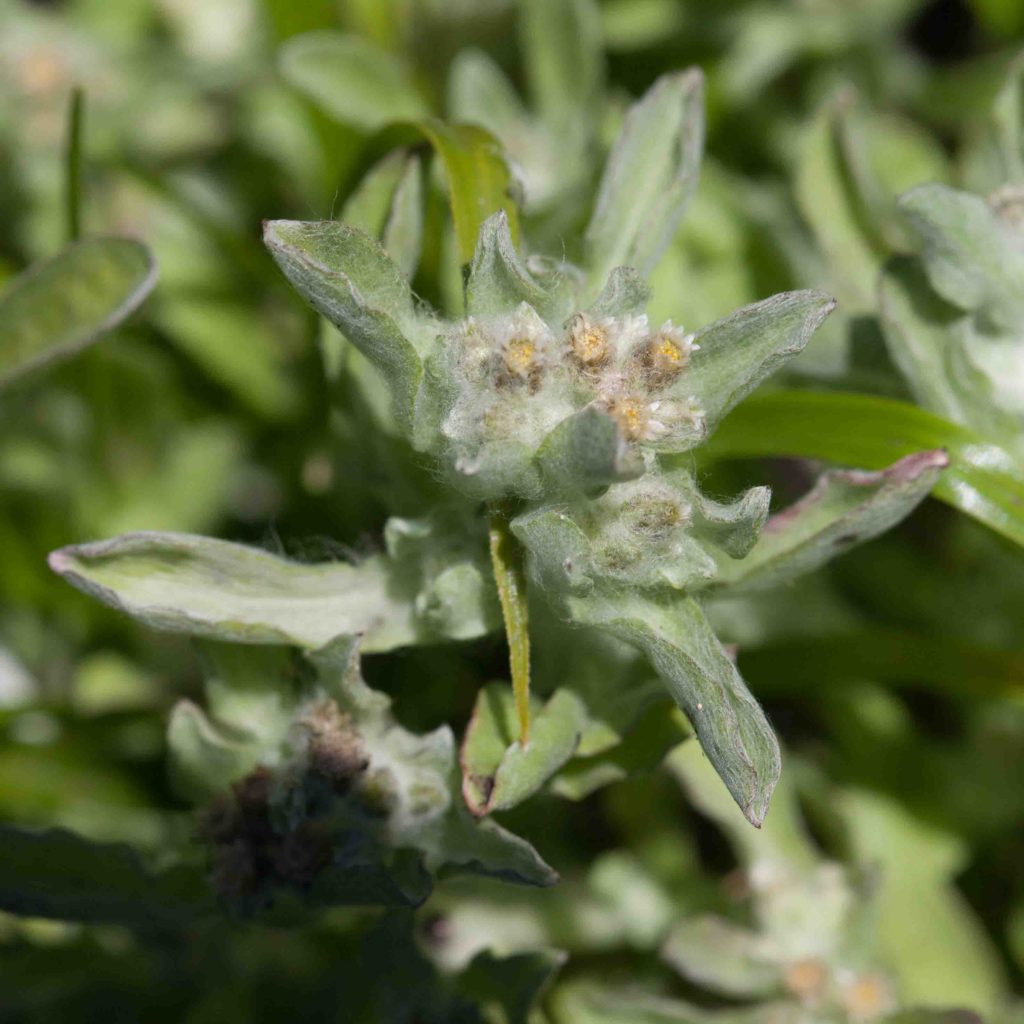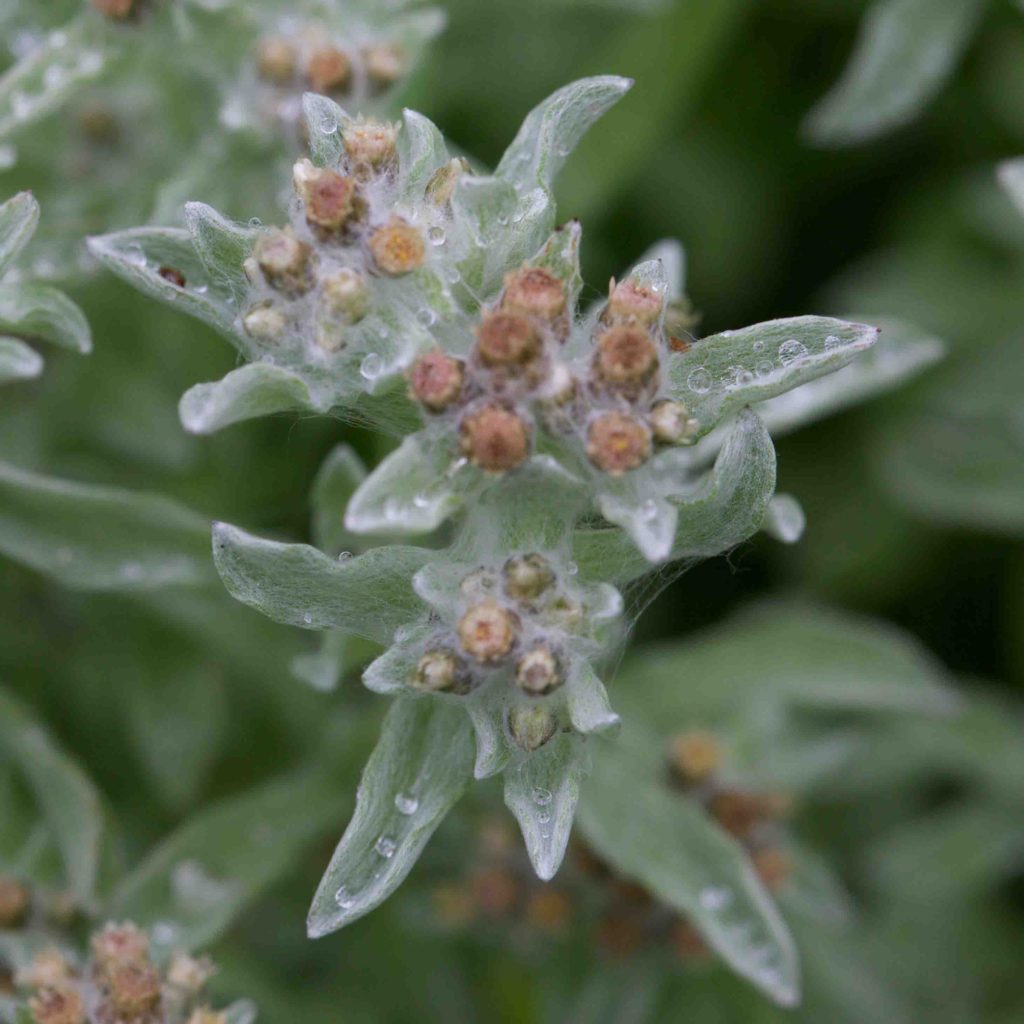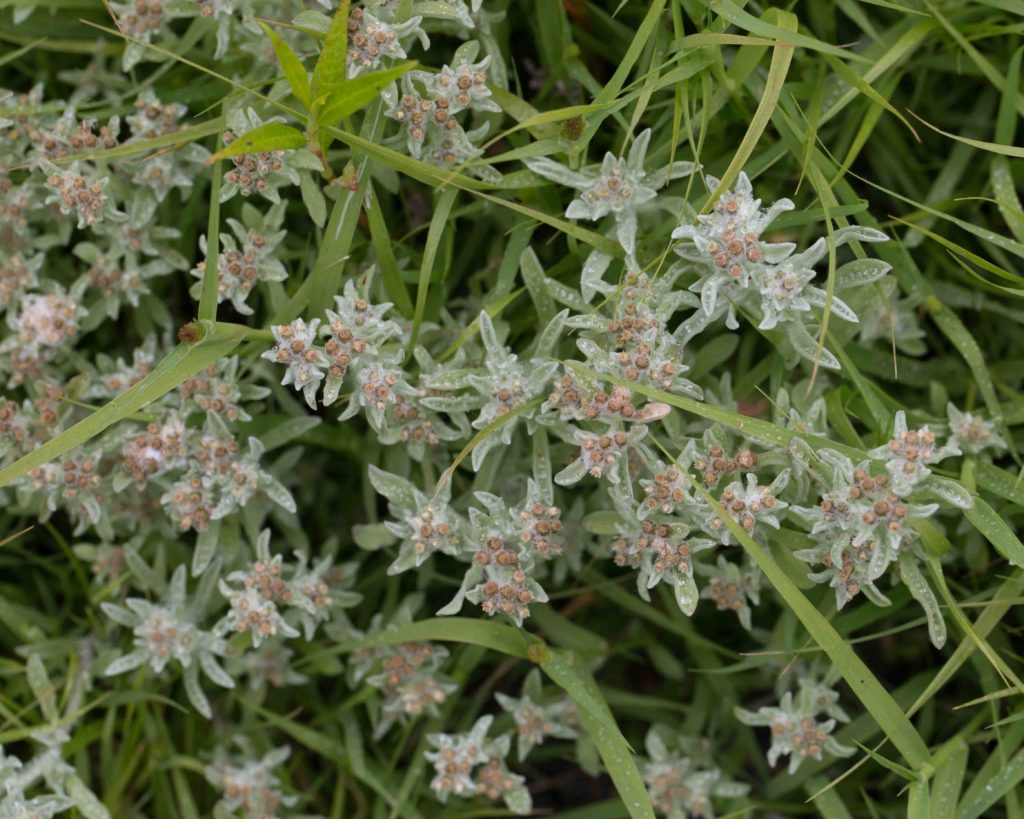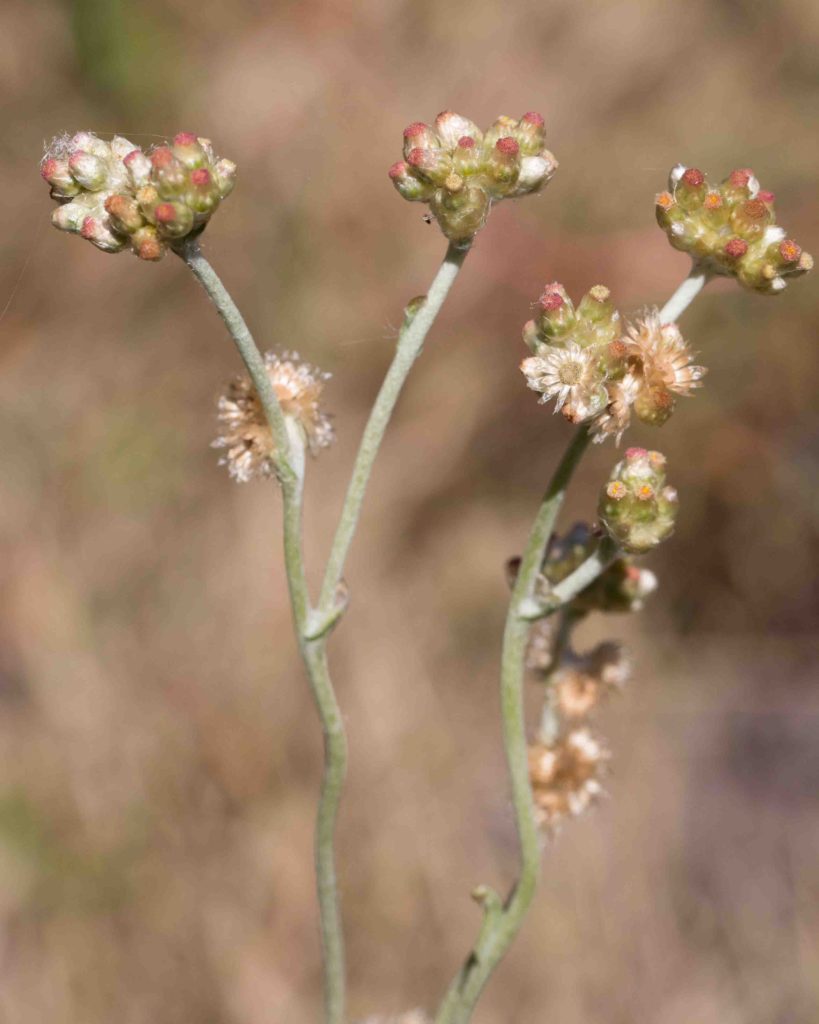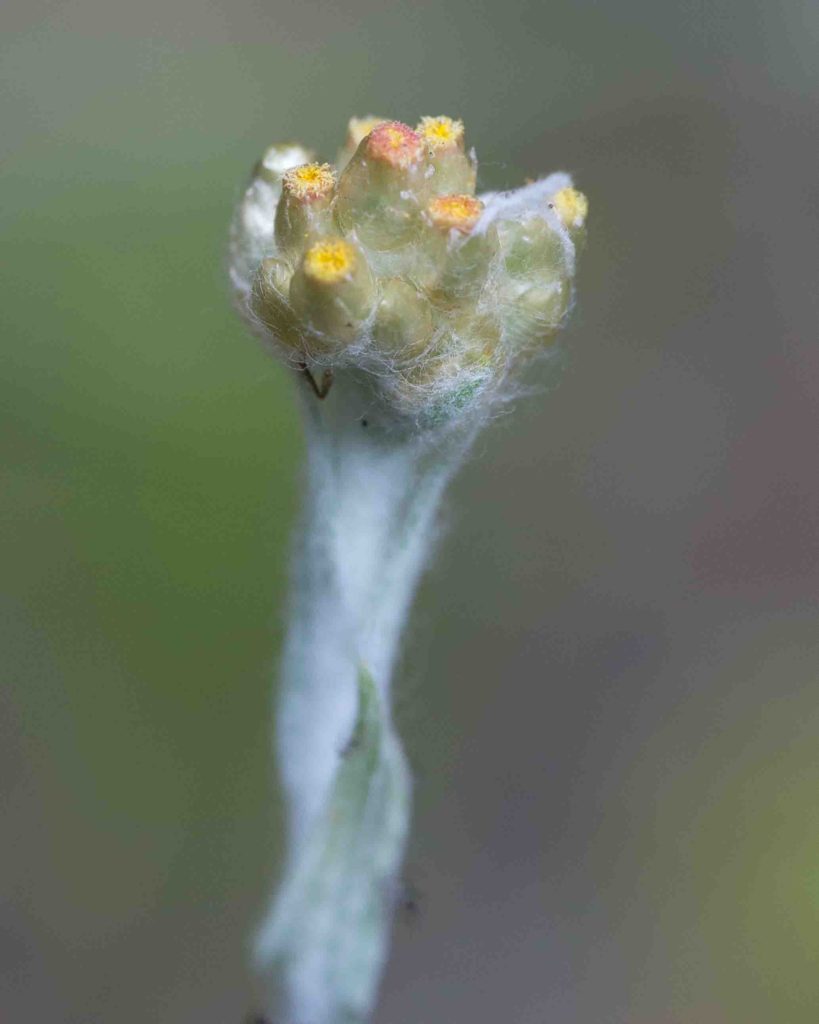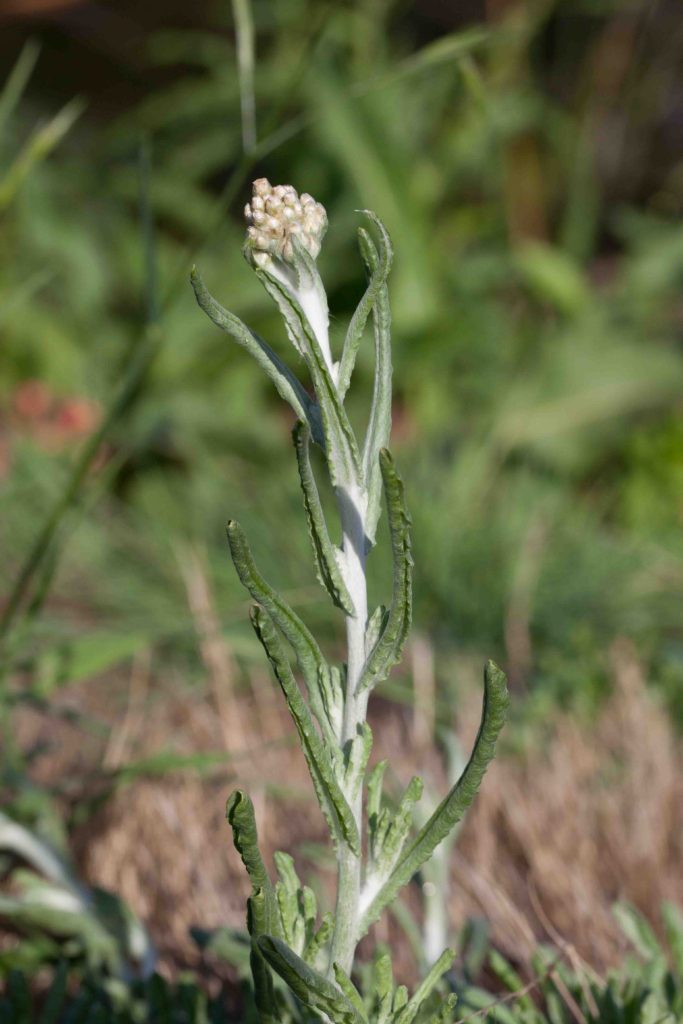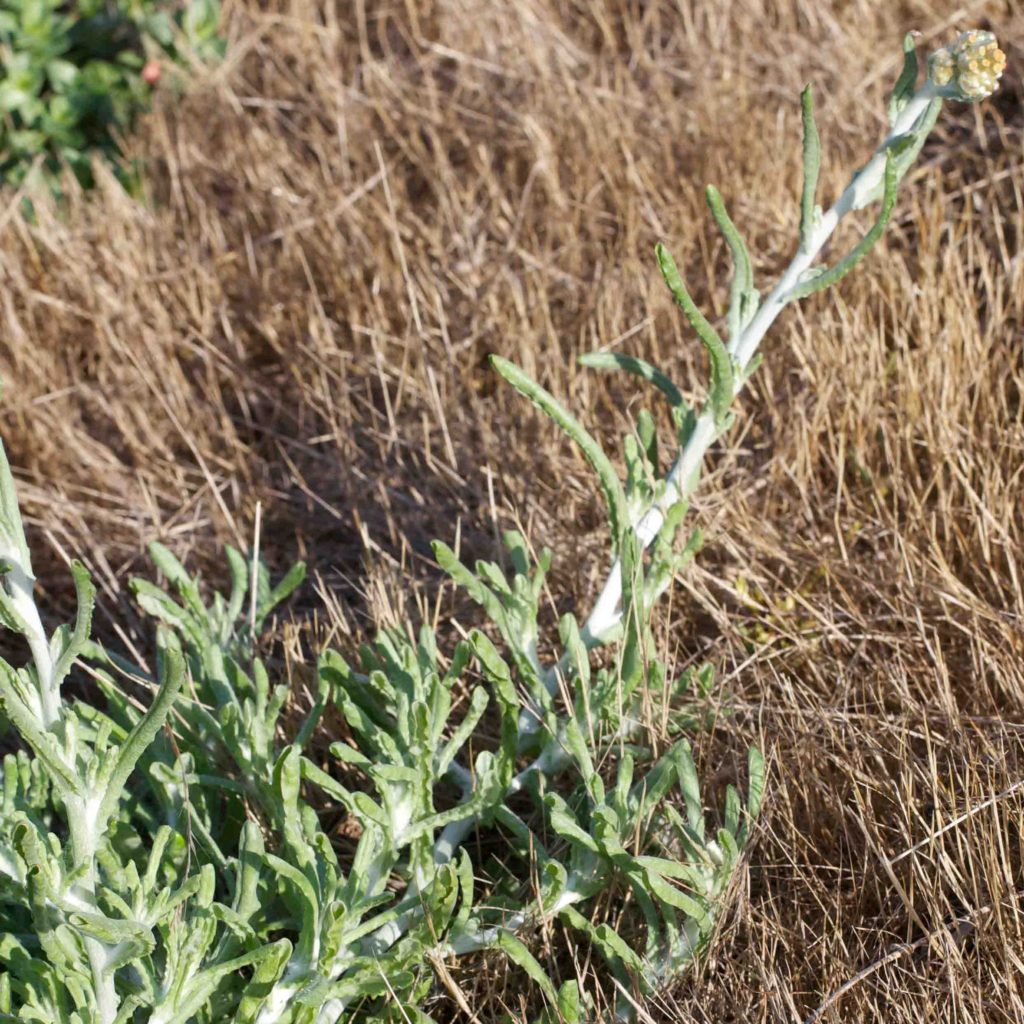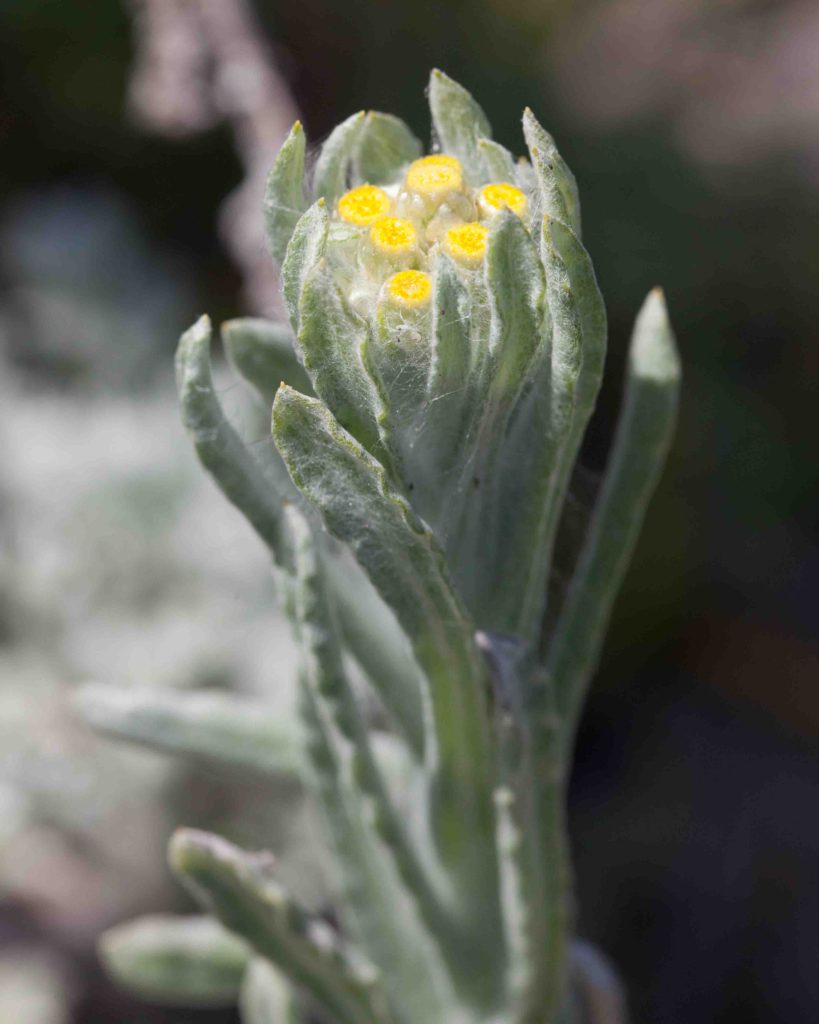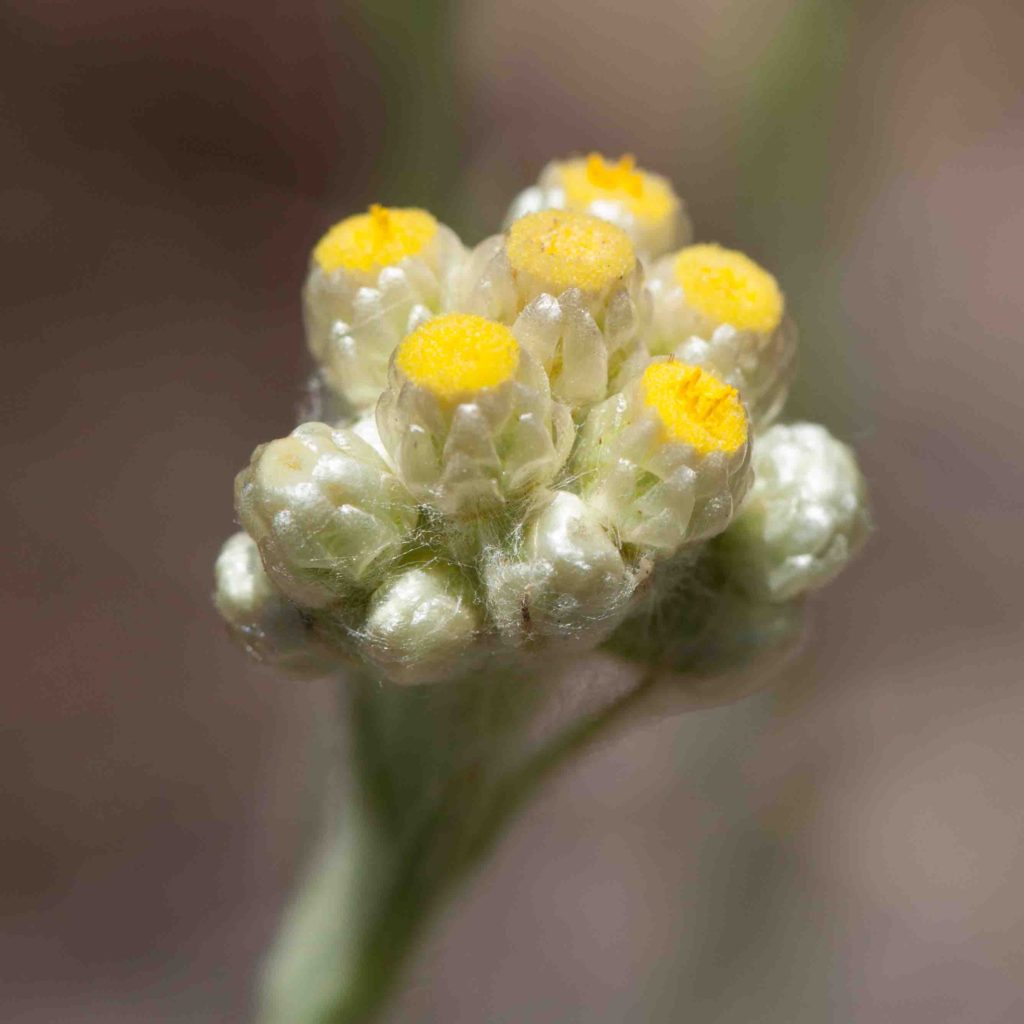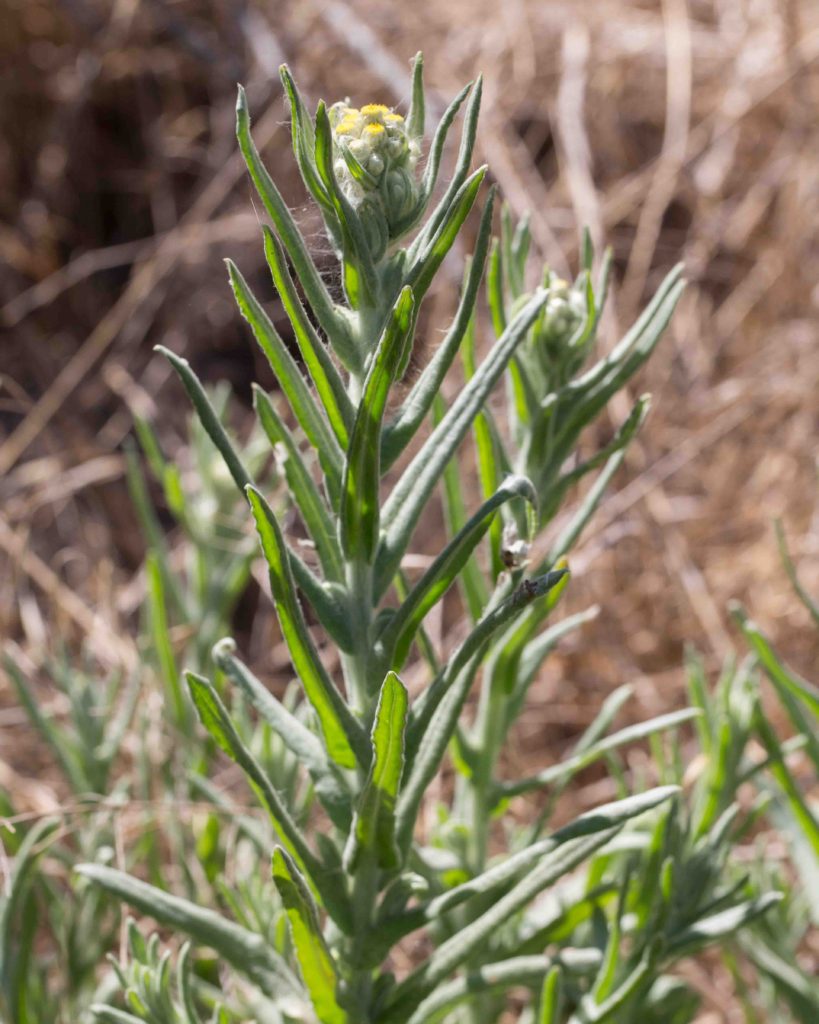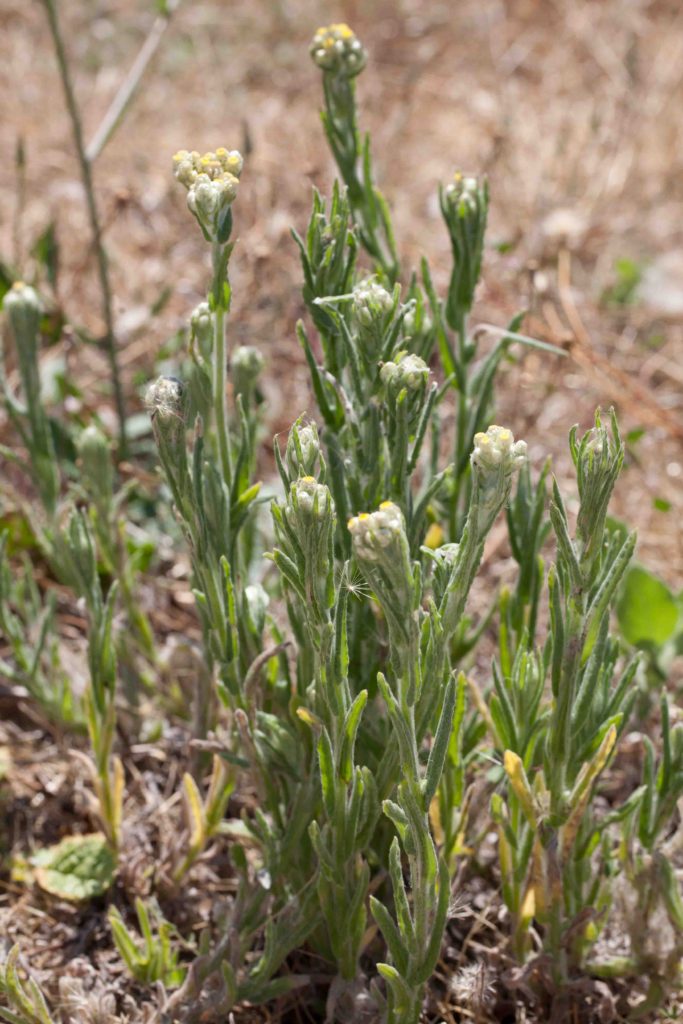Asteraceae: Sunflower Family – Gnaphalieae (Cudweed) Tribe – 2
The Sunflower family is a very large family with over 25,000 members. Botanists subdivide the family into a number of tribes, of which 14 are present in Monterey County. Members of the Gnaphalieae or Cudweed Tribe lack ray flowers, and usually have tight heads with inconspicuous disk flowers only. This page covers some of the smaller species.
Purple Cudweed – Gamochaeta ustulata
Blooms:
Apr–July
Plant Height:
10–40 cm
Flower Size:
Small cluster
Origin:
Native
Habitat:
Dry places
Notes:
This is one of the least-attractive members of an already undistinguished group of plants. It has a terminal spike or cluster of small purplish flower heads. Leaves are hairy, spoon-shaped to oblanceolate, greenish and sparsely tomentose above, and densely white-tomentose below. Photos #1 and 4 by CJH.
Lowland Cudweed – Gnaphalium palustre
Blooms:
Mar–Oct
Plant Height:
10–20 cm
Flower Size:
Small cluster
Origin:
Native
Habitat:
Damp banks & streambeds
Notes:
Very low-growing, sometimes in profusion. The whole plant is covered in woolly hairs. The pale yellow flowers are in tight clusters at the stem tips and upper leaf axils, and are subtended by greenish-gray, tomentose leaf-like bracts.
Weedy Cudweed – Pseudognaphalium luteoalbum
Blooms:
Apr–Aug
Plant Height:
10–60 cm
Flower Size:
Small cluster
Origin:
Eurasia
Habitat:
Roadsides & disturbed places
Notes:
This common plant does full justice to its common name. Similar to Cotton Batting Plant (Pseudognaphalium stramineum, see below), but its stems are more slender, with upper leaves more widely spaced, and its disk flowers are often red-tipped. Phyllary tips are translucent, silver-gray to yellow or brown. Leaves may be tomentose on both surfaces, or sometimes the upper surface is glabrous.
Cotton-batting Plant – Pseudognaphalium stramineum
Blooms:
Mar–Aug
Plant Height:
10–80 cm
Flower Size:
Small cluster
Origin:
Native
Habitat:
Many habitats incl. dunes, chaparral & roadsides
Notes:
Can be mistaken for Weedy Cudweed (Pseudognaphalium luteoalbum, see above), but the growth pattern of the plant tends to be more congested and the disk flowers are yellow. The leaves are crowded throughout, decurrent and consistently tomentose on both surfaces, often subtending or surrounding the head. Phyllary tips are white, often aging yellowish, and translucent.
